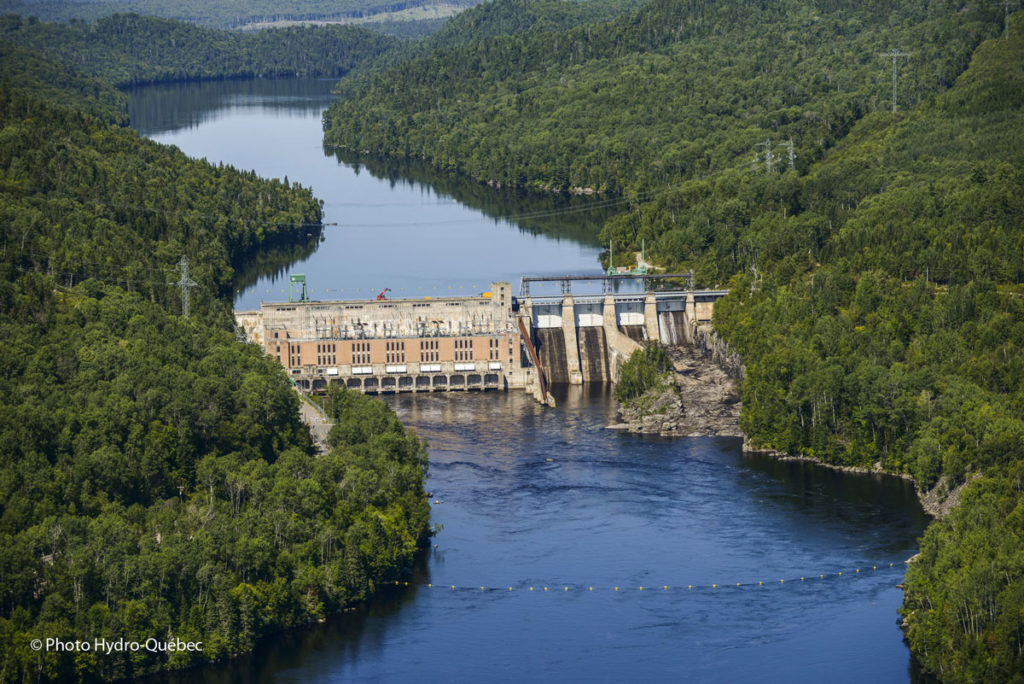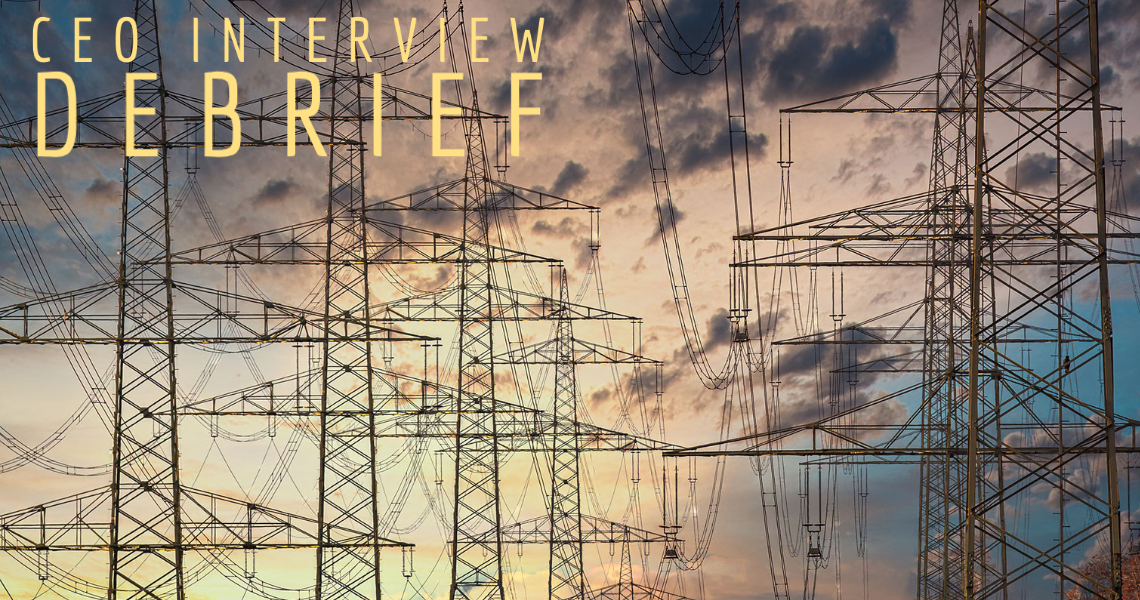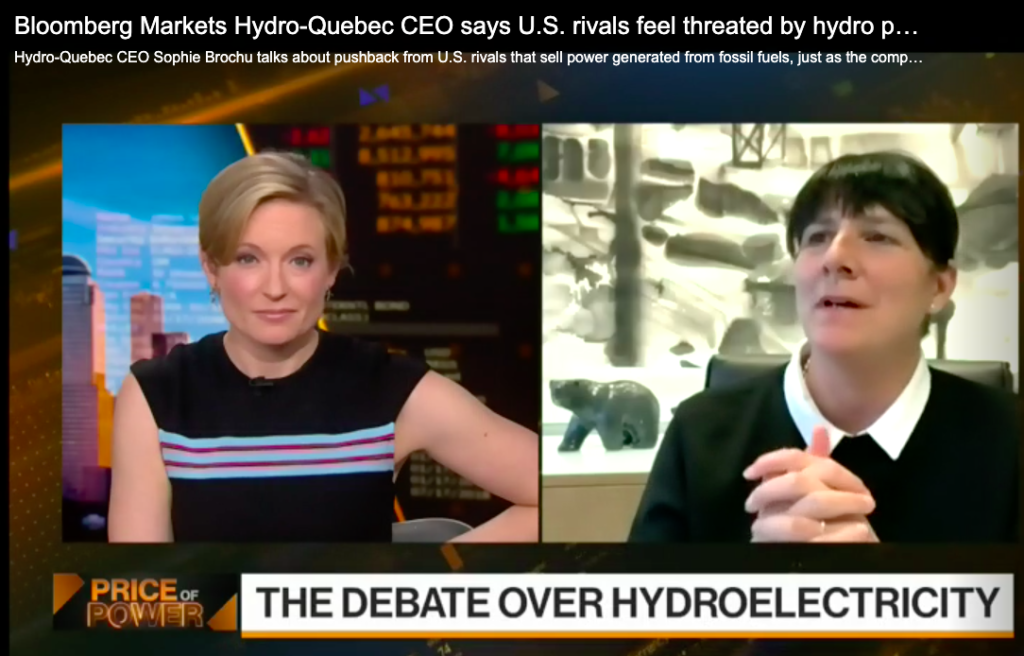If you read the first two CEO Interview Debriefs (about Allied REIT’s Michael Emory and then Air Canada’s Michael Rousseau,) you may recall that both CEOs missed opportunities to redirect the conversation towards what mattered most for their company. Being a Question Taker – allowing the interviewer to fully drive the direction of the interview – is very common, not just among CEOs, but in most interviews, largely owning to the discomfort people have in coming to the conversation with an agenda.
It’s not always a fatal flaw – if you and the reporter or host are focused on the same topic, and the latter is both prepared and a strong interviewer, you could end up having a very productive conversation. But what happens when the host is having an off day, isn’t well prepared, or just asks a bunch of weird and disconnected questions?
That’s what Sophie Brochu, CEO of Hydro-Québec faced on BNN last week, when she was interviewed by both Amanda Lang and Alix Steel. (The interview is six and a half minutes and, as with other instalments in the CEO Interview Debrief series, worth watching to get the most out of what follows.)
Take Opportunities to Educate
Steel introduced the segment noting that Hydro-Québec’s project is “could receive pushback from U.S. rivals that generate power from fossil fuels.” But rather than start with the project in question that Brochu presumably wants to talk about as part of her efforts to sway referendum voters, Steel starts with this:
“Before we get to the issue of building, what happens if the water turns off? What happens if there’s a drought? The sun won’t shine, maybe the wind won’t blow, what happens if there’s a drought?”

This is a Renewable Energy 101 question, delivered with an accusatory tone but delivered with a smile. Brochu responds by explaining that Hydro-Québec’s reservoirs, across 40 projects, have a full year’s worth of production. She turned a somewhat bewildering first question into an opportunity to educate viewers (and the host) about the scale of Hydro-Québec and its reliability.
The impetus for Steel’s first question was unclear, but Lang dropped the subject with her next question. “You have signed this long-term contract with New York; it’s a sizable one, but it does require new infrastructure that will cross other states. Maine is already in vocal opposition to this, Sophie. What’s the plan if the state of Maine is successful in blocking the infrastructure required?”
It would have been a good question about the actual news at hand, except that Tuesday’s referendum in Maine was not related to the long-term contract with New York City announced in September. The referendum was an effort to block infrastructure needed to serve a separate deal with Massachusetts.
Pivot!
So Brochu corrects the premise of the question and then gives the background to the project that is actually at hand. (Go to about 1:35 in the recording.) And rather than answering the question asked – what happens if Hydro-Quebec loses the referendum (which in fact they did) – she pivoted to the message she likely went on BNN to deliver: that the opponents in the referendum are indeed backed by fossil fuel-power producers.
“Actually, their strategy is quite simple. They stir a pot locally, they try to impede and they launch several attacks on the project so they can defer – or in their hope – derail the project. The fact is, the population wants it, the state wants it. It’s not Maine rejecting the project. The referendum is being financed by Texas people, actually. They are very aggressive, and as your investors know, their business model has the destiny of an iceberg headed for the south seas. They don’t like Hydro-Québec and they don’t like hydropower, because we are there no matter what.”
Brochu does a good job with her messaging, asserting that in the “long-term” they and other renewable energy advocates will prevail because renewable energy is the right thing to do. It’s worth mentioning that she didn’t hesitate to take up space with what was a fairly long answer, to a question that wasn’t asked.
Lang circles back and tries to ask the question again, and again refers to the N.Y. contract rather than the Massachusetts project that is currently at issue. Steel then changes the subject entirely again with, “How are you handling rising costs?” “Rising costs of what? Brochu asks. “Everything,” Steel replies.
All to say that with two hosts, and four disconnected questions embedded with errors and misconceptions and betraying a lack of understanding of Hydro-Québec or the actual news at hand, Brochu had her work cut out for her from beginning to end of the interview. Despite the questions, and a seeming lack of interest in the referendum itself in Maine, she managed to carve out time to present her position and characterize the position of the opponents in the referendum as being self-interested and out of touch.
Share Examples
Brochu is a skilled interview subject. She confidently delivered a point of view, demonstrated her ability to correct errors embedded in questions, the ability to bridge to what she wanted to say, and to use examples to make her point. The challenge in this interview is less about her performance than what took place before first Brochu agreed to the interview.
It’s not clear whether Brochu’s team approached BNN (which they might have done so that Brochu could make her case before the referendum vote), or vice versa. But it seems pretty clear from the lack of a through-line to the questions asked and the fact that they weren’t really about the news at hand, that the hosts were not sufficiently prepped or coordinated for the interview (as evidenced by the brief moment where the two hosts were talking over each other at 4:19.)
Hosts like Lang and Steel will do multiple interviews in a day, and one is in Canada and one in the U.S. They can’t be experts on every company and issue, so they rely on their producers to do background research and prepare them with questions. The best thing that Brochu’s team could have done (and maybe they did) would be to send a backgrounder to help out the producer. Hydro-Québec, despite being mammoth and well known within Quebec, is ill understood outside the province, and the same can be said about hydroelectricity more broadly.
Considering everything, Brochu did a good job in this interview. (Earlier in October she was on Tout le monde en parle, (in French) where she further demonstrates strong interview skills.) The company did in fact lose the referendum yesterday, so Brochu still has a problem on her hands. We don’t know what she’ll do next, as she managed to end the interview evading that question.
Lessons for CEOs (and the Rest of Us)
- If you’re not getting the questions you want to answer, (this interview had only four questions, and two of them had nothing to do with the referendum,) take control and bridge to the topic you want to discuss. Brochu wasn’t entirely successful in bringing the interview back to a focus, but the final result falls more squarely in the hosts’ preparation.
- Use examples. Brochu both talked about how many reservoirs the power company has and the use of drones to cut costs as ways to bring her answers to life.
- Correct the premise of the question if it contains errors. If you don’t, your viewers will carry those errors with them.



